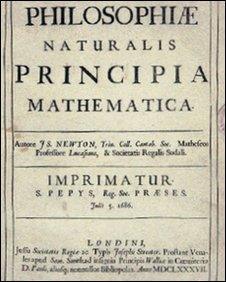Cambridge University 'digital library for world' plan
- Published

Newton's Principia Mathematica will be among the first to be available online
Cambridge University Library said it wants to be a "digital library for the world" by putting its collection of more than seven million books online.
The plan follows a pledge of £1.5m, which will pay for the infrastructure for the first stage of the project.
The library will begin digitising "some of the greatest books in existence", including the papers of Isaac Newton.
Librarian Anne Jarvis said: "We want to make it accessible to anyone with an internet connection."
She added: "At the click of a mouse, students or scholars will be able to plunge into the worlds of Mediterranean Jewish, Muslim and Christian communities of the 11th Century, or into the minds of Isaac Newton and his contemporaries."
'Significant' manuscripts
The first collections to be digitised will be entitled The Foundations of Faith and The Foundations of Science.
The library said its faith collections include some of the oldest and most significant Qur'ans ever to be uncovered, as well an eighth Century copy of Surat al-Anfal, the eighth chapter of the Qur'an.
It also holds the Jewish Taylor-Schechter Genizah Collection - 193,000 fragments of manuscripts as significant as the Dead Sea Scrolls, it said.
One of the most important Greek New Testament manuscripts are among its Christian holdings.
Records of the development of modern science, including the most comprehensive collection of Newton's papers, will be among the first to be digitised.
If successful, and following further funding, the collections of Charles Darwin, James Clerk Maxwell, and Stephen Hawking could also be digitised, along with other major collections in the fields of humanities and social sciences.
The £1.5m has been pledged by Dr Leonard Polonsky, the founder of the Polonsky-Coexist Lectureship in Jewish Studies at the university.